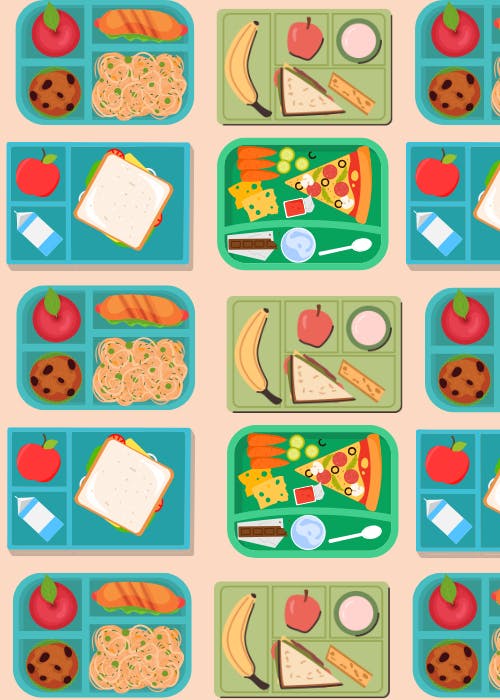

Serving Success: Universal School Meals Would Be a Win for Poverty Reduction
Insights
January 23, 2025
By: Julie Kronick
Creating universal free school meals for all students in New York has been a long-time priority for CCC, so we are encouraged to see this initiative funded in the Governor’s proposed Executive Budget for FY26. As a child advocacy organization and member of the Healthy School Meals for All coalition (HSMFA or #Meals4AllNY), we know that providing children with no-cost food in school has a number of proven benefits for families, children, and communities. Below we outline the significant impact of this investment.
At the top, feeding children in school without direct cost to parents and families reduces food insecurity. This has an overall positive impact on child health, as providing free school meals ensures all children, regardless of their family’s income, have access to nutritious meals. Data shows that children receiving school lunches consume more milk, fruit, vegetables, and fiber than their peers. It also has a positive effect on educational outcomes. Hungry children struggle to concentrate and learn effectively, so access to healthy meals contributes to better academic performance and attendance overall, which has life-long effects on a child’s future.
To recap: what can universal school meals programs do for children in school?
🍎 Improve performance across academic areas
🍎 Reduce stigma for low-income students
🍎 Improve test scores
🍎 Improve attendance
Reducing food related anxiety for children and families is also a key component in poverty reduction. Many families currently in school lunch debt earn just over the threshold to qualify for the current free or reduced cost meal programs. According to a data publication from HSMFA, a New York family of four earning just above $55,500—far below a living wage in our state—does not qualify for free school meals. In fact, last year a John Oliver segment on school lunch policy and advocacy discussed the reality that children often choose to skip lunch to avoid financially burdening their families.
The Governor’s Office estimates that universal free school meals will save families an average of $165 per child per month, a critical step in making New York more affordable across the entire state. Plus, data from The Rockefeller Foundation and the Center for Good Food Purchasing shows that every dollar invested in school meals provides over $2 in health, equity, environmental, and economic benefits. Universal school meals programming can significantly support child poverty reduction for these and more reasons.
To recap: what can universal school meals programs do for families and communities?
🍎 Reduce child poverty
🍎 Reduce longstanding and widening racial disparities in nutrition, health, education, and achievement
🍎 Create better health outcomes
🍎 Eliminate school meal debt
Last year we learned that households with young children were 40% more likely to leave New York State than other households due to cost of living issues. Implementing programs like universal school meals can alleviate food insecurity and child poverty for so many families, making New York a better home for all. We applaud Governor Hochul in funding universal school meals in the FY26 New York State Budget. As part of the HSMFA coalition, we will continue to work with our wonderful partners in child and food advocacy as well as champions in the state legislature to make this happen and place another stone on the pathway to reducing child poverty.


